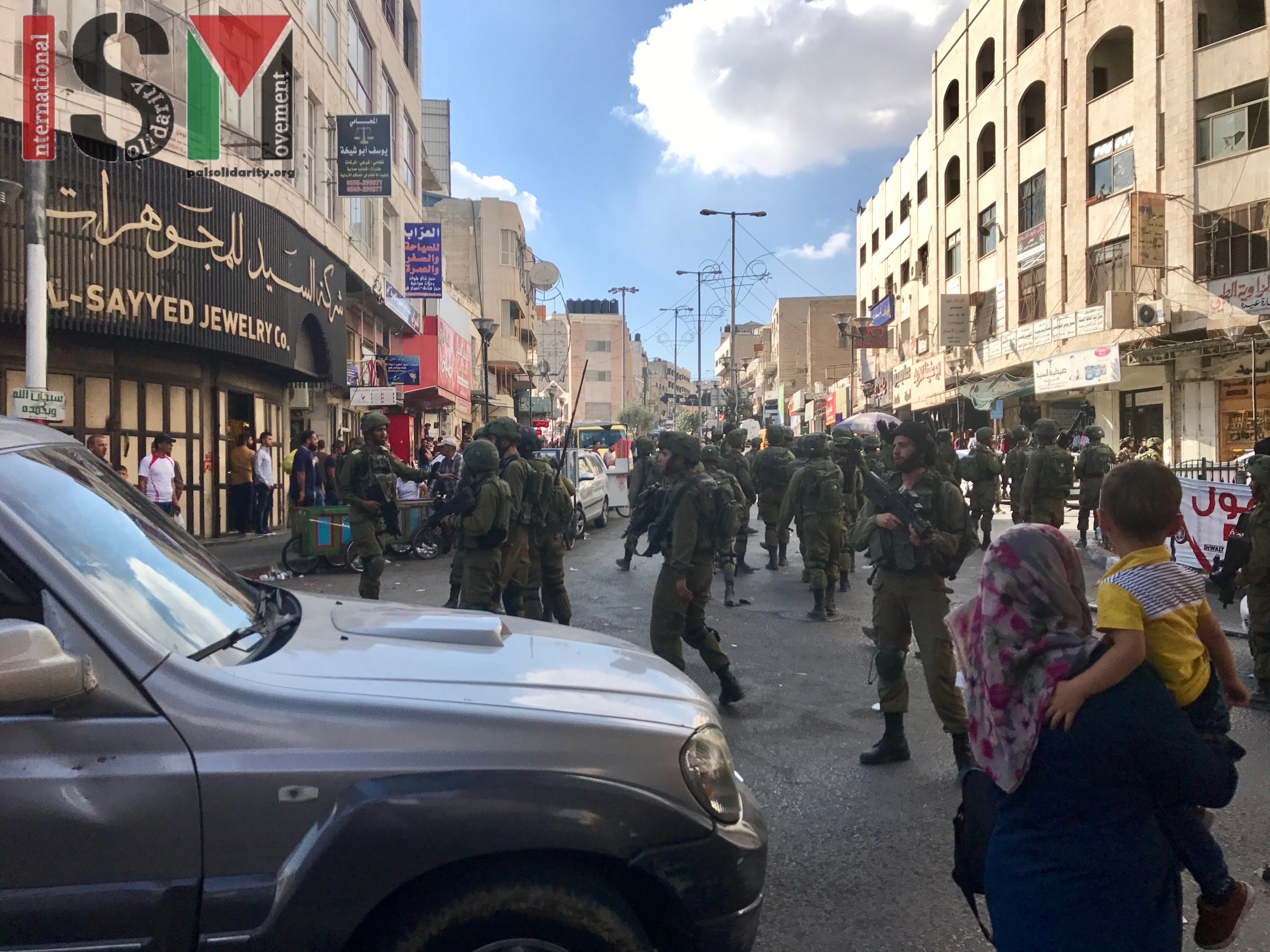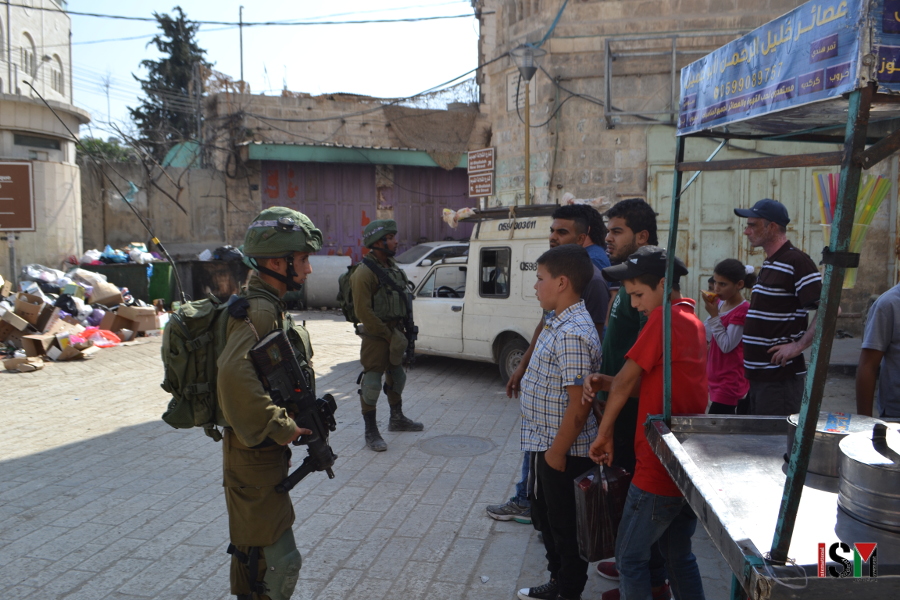Tag: Arrests
-

Israeli Forces use live ammunition in occupied Hebron
22nd September 2017 | International Solidarity Movement, al-Khalil team | Hebron, occupied Palestine On Friday, September 22, the usual small scale and unorganised protests next to the Shuhada checkpoint elicited an exaggerated response from the Israeli military. At 2:00 PM approximately 15 soldiers went into H1 in pursuit of the protesters, firing tear gas and…
-

Arrests of young Palestinians continue in occupied Hebron
20th September 2017 | International Solidarity Movement, al-Khalil team | Hebron, occupied Palestine During the patrol around the old city, on Wednesday the 20th of September at 4 PM, the Al-Khalil team ran into a group of about 20 soldiers and followed them through the market in the Old City. The armed forces surprised the…
-

Israeli forces arrest 3 children, and harass Palestinians in occupied Hebron 2nd day in a row
24th August 2017 | International Solidarity Movement, al-Khalil team | Hebron, occupied Palestine Israeli soldiers, for the second day in a row, invaded the old town in Hebron (al-Khalil), arresting four people. The occupation forces blocked the main road for 4 hours restricting the movement of the Palestinians. The Israeli forces used stun grenades to…
